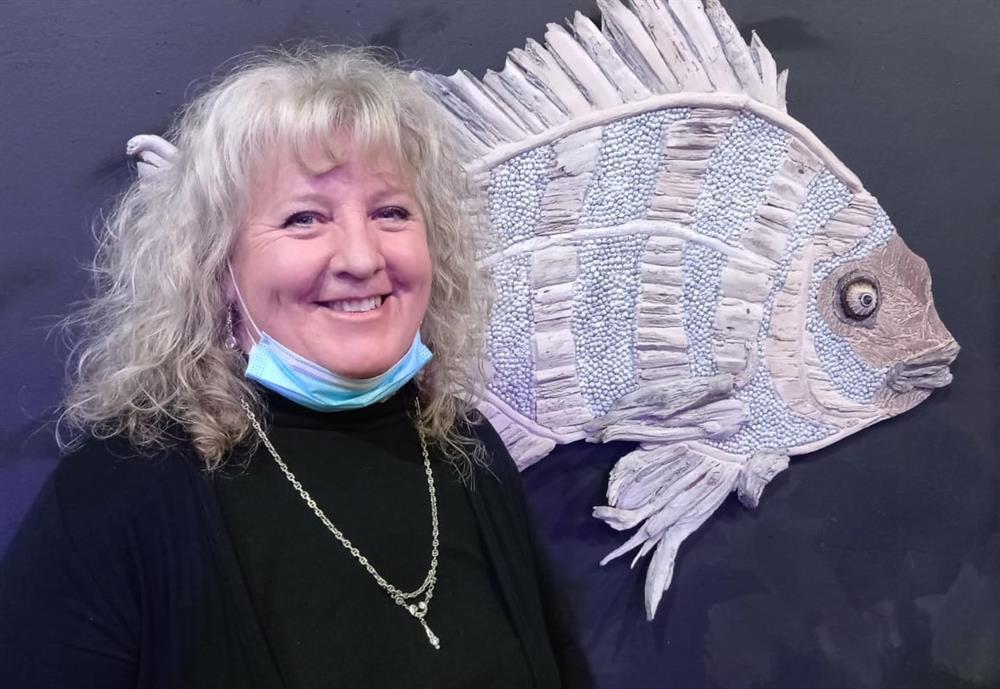MOSSEL BAY NEWS - Cape fur seals are starving to death and aborting their pups and whales which usually calf every three or four years, are now only calving every seven years, because there is not enough food to eat in the ocean.
This is according to Mark Dixon, an environmental field researcher, marine biologist, nature guide and avifaunal consultant.
He spoke at Mossel Bay's Dias Museum annual Marine Month function which took place on Thursday, 28 October, this year.
Dixon noted there would be more food in the ocean if sardines were not removed. "They are the base food of the ocean," Dixon said. He pointed out that they were used in cat foods, foods to feed other animals and also for human consumption.
Great white sharks were dependent on smaller shark species for food, Dixon said. Contrary to popular belief that they ate mainly seals, smaller sharks were their main source of nutrition. Fishing of sharks by longliners and by recreational fishermen removed sharks' main source of nutrition, he said.
Great white sharks had left False Bay, Dixon noted. There were some of them left in Mossel Bay and Sedgefield, however. Dixon said killer whales, also known as orcas, hunted great whites in order to eat their nutritionally rich liver. The dead great whites, minus their liver, then washed up on the coast.
PHOTO GALLERY: Marine Month function at Dias Museum
Scarce
Kabeljou, rock cod and sail fish were scarce and should be preserved, Dixon said.
Also, the population of southern right whales was declining because of a lack of food for them.
Dixon started the Strandloper Project, a marine conservation initiative. As part of the project he has removed hundreds of lead sinkers, used in recreational fishing, from reefs - 68 to 94 sinkers per month. The sinkers cause lead poisoning and "dead patches" on reefs, where nothing grows and there are no fish. Dixon points out: "Twenty metres away, where there are no sinkers, one sees fish again."
On a positive note, there was success in Saudi Arabia with recultivating corals. A broken piece of coral could regrow, Dixon said. "It has to be a 16mm-long piece."
Also, there had been success recultivating eelgrass, he noted.
Dana Bay artist Albri Woodward's works were on display at the museum and she spoke at the function about her creative process. Radiant and full of smiles, she incorporated personal anecdotes about her family and friends and proved herself a warm, engaging communicator.
Shimmery
Her impressions of fish, painstakingly created using small pieces of driftwood and shells, have a shimmery, ethereal look.
Children were supervised during the event. They enjoyed creating pictures by glueing shells and marine-type objects on to paper.
Point High School music students performed before the proceedings began, under the guidance of the school music department head Louise van Wyk-Visser.
The Stranded Marine Animal Rescue Team (S.M.A.R.T.), had a strong presence at the event, displaying its banner with its logo, as well as a large turtle mascot.
 Albri Woodward with one of her artworks. Photo: Linda Sparg
Albri Woodward with one of her artworks. Photo: Linda Sparg
 Attendees enjoyed dressing up according to the marine theme. Photo: Supplied
Attendees enjoyed dressing up according to the marine theme. Photo: Supplied
'We bring you the latest Mossel Bay, Garden Route news'















